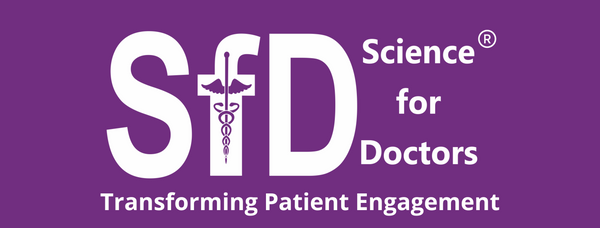
The Doctor-Patient Relationship: Building Trust for Better Health Outcomes
Share
When we think about healthcare, the first things that come to mind might be medical procedures, treatments, or medications. However, one of the most critical factors in successful healthcare isn't found in a medical textbook—it's in the quality of the relationship between doctors and patients. The doctor-patient relationship is a pivotal element that can influence the effectiveness of treatment and overall patient satisfaction. In this blog, we'll explore why this relationship matters and how to cultivate a positive dynamic for better health outcomes.
1. Trust & Confidence
Trust is fundamental to a robust doctor-patient relationship. For patients to share their symptoms, concerns, and lifestyle choices openly, they must believe that their doctor is knowledgeable, empathetic, and dedicated to their well-being. SMS Scientific Products plays a key role in strengthening this trust by facilitating better communication. This enhanced trust promotes honesty and improved patient-doctor interactions.
2. Empathy & Compassion
Empathy involves more than just understanding a patient’s condition; it means connecting with their emotional state and showing genuine care. Compassionate interactions can alleviate anxiety, build rapport, and foster a supportive environment where patients feel valued and respected.
3. Continuity & Personalization
A continuous relationship with a healthcare provider allows for a deeper understanding of a patient’s medical history and personal circumstances. This continuity can lead to more personalized care, tailored to the individual's specific needs and preferences, enhancing the overall effectiveness of treatment.
What Patients Want in Healthcare Providers.?
1. Emotional and Spiritual Support
Patients seek to be treated as individuals, with healthcare providers who are attentive and empathetic. They want to feel that they have a say in decisions affecting their care and that their identity is not overshadowed by their illness.
2. Continuity and Competence
Patients expect effective communication not only with their providers but also among the various members of their healthcare team. They want to be well-informed about their health conditions, treatments, and procedures to feel confident in their care.
Providing patients with information about their condition and treatment options empowers them to take an active role in their health. This includes explaining medical terminology in layman’s terms and discussing potential outcomes and risks associated with different treatments this.
Conclusion
The doctor-patient relationship is more than just an interaction; it's a partnership that significantly influences the quality of healthcare. By focusing on trust, communication, empathy, respect, and continuity, healthcare professionals can build strong relationships that enhance patient satisfaction and improve health outcomes. For patients, engaging in this relationship with openness and involvement can lead to better understanding and management of their health. Ultimately, a positive doctor-patient relationship is a key ingredient in achieving the best possible care and fostering a healthier, more informed community.
